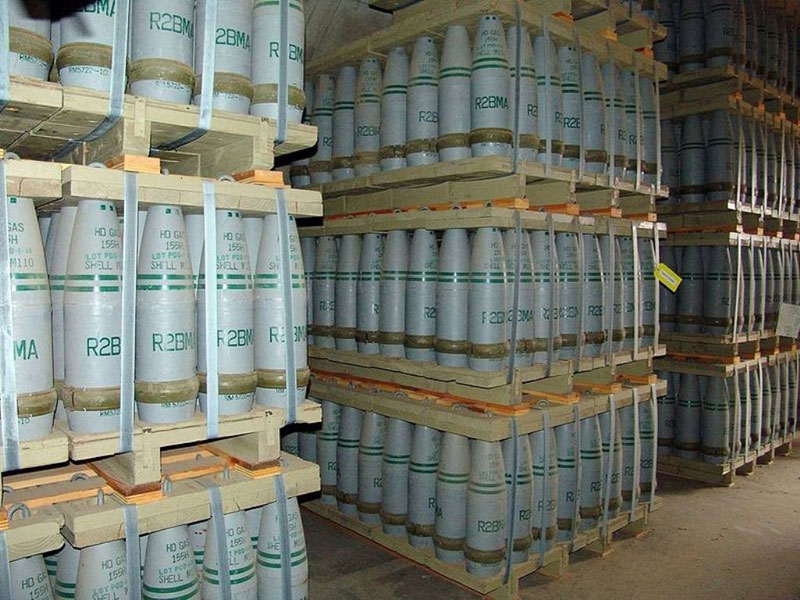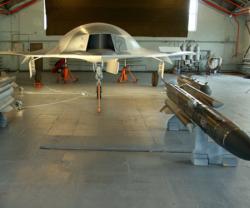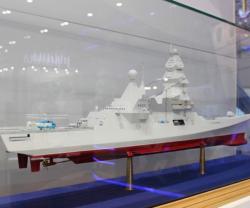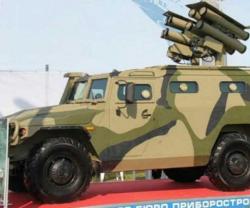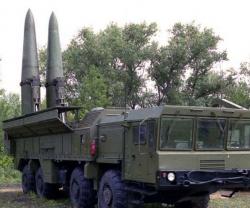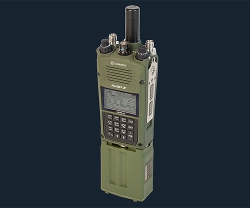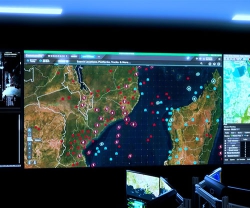Diplomats and officials said that transporting the toxins abroad for destruction, as was recently done in Syria, is the most viable option to keep them out of the hands of battling militant groups.
Since the removal of Muammar Qaddafi three years ago, the country has descended into anarchy, with rival militias and hardline Islamic groups battling for political control and vast oil reserves.
Facilities to destroy the chemical weapons were set up and Libyans were trained to use the equipment, but fighting threatens stability and has made it impossible to safely conduct their work.
Experts at the Organization for the Prohibition of Chemical Weapons (OPCW), which won the Nobel Peace prize this year, are “working on something right now,” one source told Reuters. The technical details still need to be worked out and the OPCW declined to comment.
The OPCW said Tripoli has already destroyed weapons that were ready for use including armed munitions and the most deadly, or “category 1,” toxins with the help of Western countries, but still has around 850 tonnes of industrial chemicals that could be used to produce weapons.
Since joining the OPCW in 2004, Libya has declared 26 metric tonnes of sulphur mustard, 1,390 tonnes of raw, precursor chemicals, 3,563 unloaded aerial bombs and three former chemical weapons production facilities.
Some of those weapons have already been destroyed and OPCW head Ahmet Uzumcu said in February he was confident the remaining chemicals would be destroyed next year, but given the worsening situation, Libya is likely to miss a planned completion date of December 2016.
The industrial chemicals could be shipped from the remote storage site, Ruwagha, in southeastern Libya, were they were initially supposed to be destroyed.
Under the 1997 Chemical Weapons Convention, all declared chemical weapons must be destroyed in the country of origin. An exception was made in the case of Syria due to the civil war, which has killed around 200,000 people.
Syria has a smaller amount of industrial chemicals, which were loaded onto cargo ships and taken to commercial destruction facilities across Western Europe.
The OPCW and the United Nations led a massive international, logistical operation to remove chemical weapons from Syria with the help of more than a dozen countries.
The OPCW, based in the Hague, Netherlands, was set up to enforce the Chemical Weapons Convention. Its founding treaty has been ratified by all countries but Israel, Egypt, Myanmar, South Sudan, Angola and North Korea.
The largest known chemical weapons program had been in Syria, which joined the convention in 2013 under the threat of U.S.-led military intervention after more than 1,000 people were killed in a sarin gas attack outside Damascus last August.
Meanwhile, Russian Foreign Minister Sergei Lavrov said at the 69th session of the UN General Assembly on Saturday that Russia “would like to see truthful information about the state of chemical arsenal in Libya.”
“We understand that our colleagues in NATO, having mutilated the country in violation of the UN Security Council resolution, would rather not touch the mayhem they have created, but the issue of uncontrolled Libyan chemical arsenal is too serious to turn a blind eye to it,” he added.
Source: Reuters

